Starting from the beginning of motherhood, you might start to wonder how to discipline a child.
Should you discipline them the same way you were raised? Should you try something new? Do new strategies even work, or are they just a fad and in the end kids turn out entitled?

There are a lot of questions that can go through our heads as we decide how to discipline our child, and it’s not easy. We can feel like there is a lot at stake if we mess this up…if we mess our child up.
And at the same time we might also be exhausted by their behaviour, especially any behaviour that seems to constantly repeat itself no matter what we do.
Learning how to best discipline your child is important, and so in this article I’ll break down how to discipline a child using 8 simple strategies.
If you’d prefer to watch the video version of this article then check it out below! I do intend to create even more Gentle Parenting focused videos so if you subscribe then you won’t miss any new videos I make too.
(This post might contain affiliate links, which means if you happen to buy a product I love then I may get a commission – at no extra cost to you! For all the Ts and Cs go here.)
What does it mean to discipline a child?
When you think of the word “discipline” do you also automatically think of the word, “punishment”? That’s the case for a lot of people, because for many of us growing up that’s all that we saw discipline to be.
I do something bad, therefore I get a punishment. That’s discipline?
Punishments are really effective for long term discipline though. Punishments give children the wrong motivator to do the right thing. If they’re only being good to avoid a punishment (due to fear) then when the possibility of a punishment is no longer an option (ex. home alone, teenage years, after they’ve moved out) then that motivator to do the right thing is also gone.
We don’t want that! We want our child to have the right motivation to do the right thing. So in the end, no punishments don’t work. And punishments don’t mean discipline.
All of my strategies and tips in this article, on my website, all my videos and any content I make will ALWAYS be punishment-free ways to discipline a child.
Related: What Punishments Are Getting Wrong About Child Discipline
Discipline very simply can be defined as to teach or train.
When we think of disciplining a child we think of correcting their bad behaviour, but also teaching them to follow the rules, make the right decisions etc. The goal is usually for the child to behave better, but your goal might also be that your child will always make good decisions in life.
At what age should you start to discipline a child?
Discipline can start even with a baby (and I have a whole article on that here). Since I’m not talking about punishments though, I’m talking about correcting behaviour with a long term goal. So with a baby this can be as simple as removing their hand and saying “Ouch!” when they squeeze you too tight.
Discipline should be a positive experience for both you and your child, not something that makes you feel icky afterwards. So you can start young and get in the habit of coaching your child to learn to make better decisions.
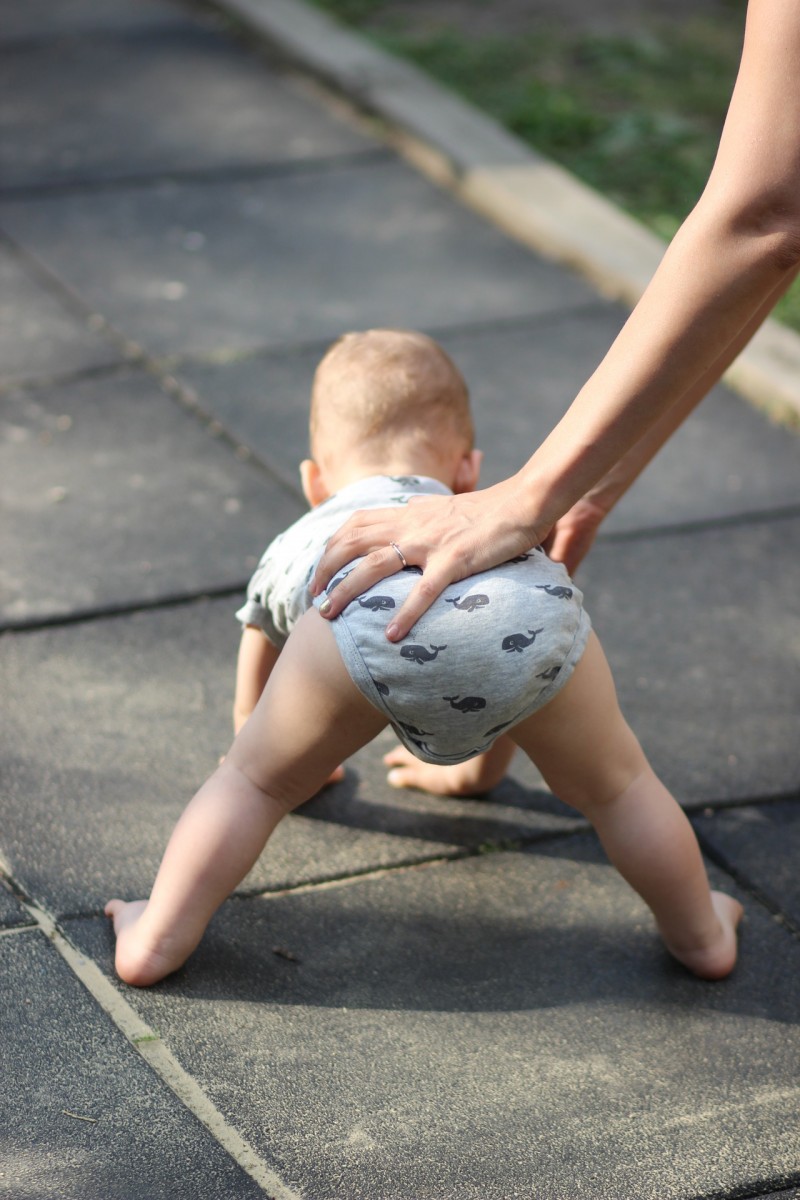
What are the different parenting styles for disciplining a child?
I like to see parenting styles on a pendulum.
Authoritarian Parenting
On one side we have AUTHORITARIAN PARENTING.
This parenting style is very strict and focused on rule following and obedience. There can be a lot of punishments, spanking, etc. Parents often expect immediate obedience from their child.
Maybe you were raised this way, or maybe this is how you’ve been raising your child. It’s a very common parenting style because it’s usually passed down from one generation to the next, and on the outside it can seem like it “works” but children might just be obeying from fear, or they’re losing their free thought in the process if they’re never allowed to question authority.
Permissive Parenting
On the other side we have PERMISSIVE PARENTING.
Permissive parenting is very different, and usually there are fewer rules or restrictions for the child, the parent can be a bit absent minded, and the child doesn’t have help figuring out what the right thing to do is. Oftentimes the child doesn’t learn to listen to the parent, which is frustrating and can lead to moments where the parent becomes very authoritarian and lashes out to try to gain back some control.
If you were raised this way that might have felt like a very unpredictable childhood. You might be tempted to give your child the opposite and have a lot more order and become authoritarian because you saw how difficult it was to have a permissive parent.
And if you’re using permissive parenting with your child it’s likely that you were raised in a really strict environment and you want your child to have a more relaxed environment and perhaps have a better relationship with your child than you had with your own parents.
Related: 4 Year Old Doesn’t Listen? Try The Easiest Approach
Gentle Parenting
In the middle is GENTLE PARENTING.
Gentle Parenting is the happy medium between these two. Quite often people think if you’re not a rule and obedience based parent then the only alternative is to be a permissive parent and that your children will “run wild” (yup, that’s what people say).
But Gentle Parenting is NOT permissive parenting. Gentle Parenting is not going to use punishments like authoritarian parenting, or even require blind obedience, but Gentle Parenting will still have boundaries for your child and help them make good decisions.
I can’t cover everything about Gentle Parenting here, but I think this article explains the basics if you’re curious: 6 Pillars of Gentle Parenting
If you really want to get started with a new parenting style though (that actually works) sign up for me free course, Gentle Foundations for Parenting.
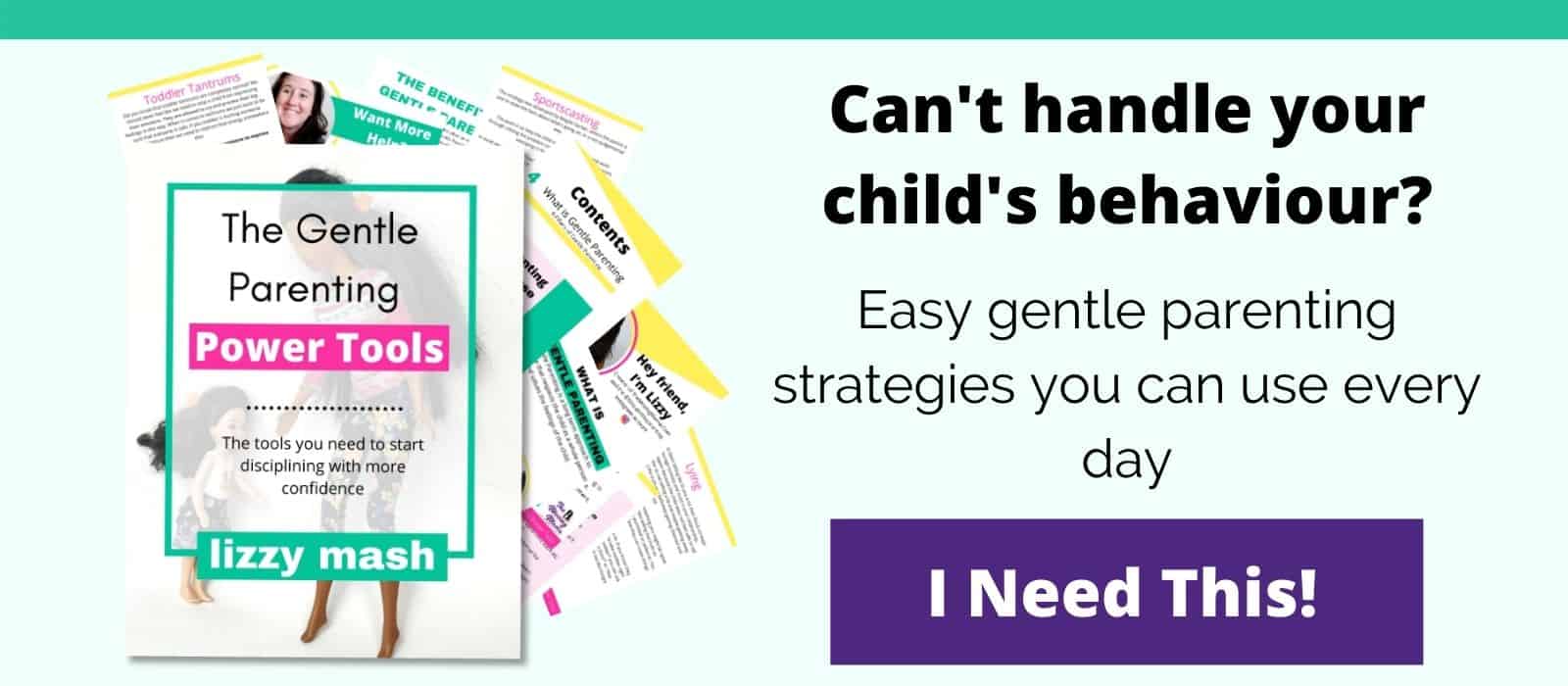
How to discipline a child without yelling or hitting
If you’re used to yelling or spanking your child as a form of discipline, then it might be a challenge to take on these 8 discipline techniques I’m about to give you.
You are not alone in this struggle. So many parents find themselves yelling or hitting their child to discipline, but wish they could stop, and even more than that have succeeded in doing so, and you can be one of them too.
It is quite likely that this practice of yelling and hitting for discipline was passed down to you by the way you were raised. If your parents yell or hit you to discipline, then it makes sense that when you’re in autopilot mode that’s what you would go to.
And if as a child you were never allowed to express your emotions (for example, told to stop crying, told any anger was a sin and you had to stop, etc.) then it’s likely that when you’re feeling stressed and annoyed by your children that you don’t have the tools to process those emotions, because you never learnt how as a child.
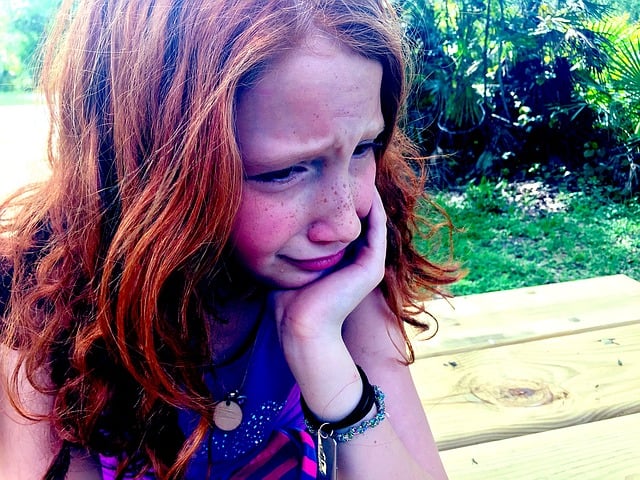
So there is still a lot of work to be done inside of you! These strategies will help to give you some new tools, but unless you give some time and energy to the root causes of your yelling and hitting then you won’t be able to truly apply these strategies.
Spend some time reflecting on your own childhood and understanding why these issues might be coming up now that you’re a parent. Therapy is sometimes ideal, but if that’s not an option for you then journalling or talking with a friend can still be extremely valuable.
Once you’ve done that, also think about what is your motivation to discipline. What are your short term goals and long term goals when you discipline your child. Understanding your answers very well can help you in the moment when you decide what to do.
Practice the pause
As you’re working through all this, one special discipline technique I want you to be aware of is to practice pausing.
When you walk into a room and see a giant mess your child has made…pause.
Your mind might be racing with a million furious thoughts, but pause for a moment to truly see what’s going on. If you pause you might realize WHY your child made the mess, or that it was definitely an accident, or that they’re already trying to clean it up.
Pause for clarity of the situation. And pause to clear your mind so you say the words you want to say.
Pause.

Top 8 discipline techniques to try with your child
Here are my top 8 discipline techniques to use with your child.
Now, remember that discipline isn’t just about correcting your child’s behaviour, it’s also about teaching them to do the right thing. Some of these strategies will help you to prevent future misbehaviour.
#1. Natural consequences
Natural consequences is the closest thing Gentle Parenting has to punishments, and when you get the hang of it you will see how effective they are.
It’s basically allowing the natural consequence of your child’s actions to teach them the lesson, instead of creating a punishment to teach the lesson.
Here are some examples from an image I made for this blog post on natural consequences.
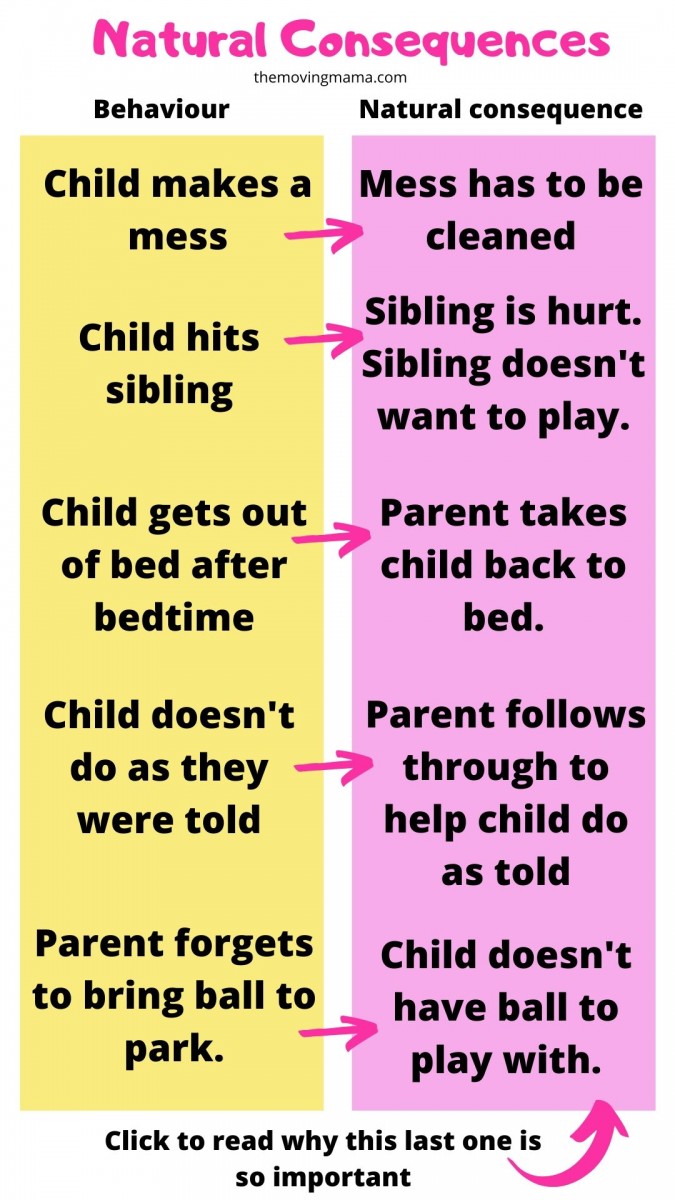
#2. Redirection
Redirection is very simple and begins when your child is a baby.
This is just redirecting your child’s attention to something else. It’s often used with tantrums and meltdowns, but it’s useful with misbehaviour as well.
Maybe your toddler wants to play with something they can’t play with…you redirect them to something they can play with.
It’s that simple, and it’s effective.
#3. Positive encouragement
Whenever your child does something they should be doing it is really good to encourage them for that behaviour.
When you praise your child for doing something it feels really good, and it will encourage them to make that same choice in the future. I would just be cautious to make sure the praise is deep and observational (not just saying, “Good job”). I have more thoughts here on how to praise our kids without making them dependent on validation here.
So when your child does as they are asked, helps their sibling, doesn’t complain when they normally would, waited patiently, etc. those are all opportunities to give them some positive encouragement for that behaviour.
Positive encouragement helps to breed good behaviour again in the future!
#4. Give them more responsibility
Yup, giving them more responsibility is a way to discipline your child.
When you give your child more responsibility it raises their confidence and their skills. It uplifts them to see that you trust them enough with this responsibility, and you teach them new skills.
Responsibility also helps your child feel like they have a bit more control over their life, which is very important for them.
When you start giving your child more responsibility make sure it’s something you know they’ll be able to succeed at, and preferably something they can enjoy so they’ll be able to stay consistent with it.
You will create more trust between you and your child by giving them more responsibility, which in the future also makes it easier for them to listen to you when you’ve asked them to do something, and gives them confidence that they can do hard things.
#5. Ask them why they did it and really listen
When you child has misbehaved, try to talk to them about what happened and REALLY listen. They might have some information you don’t already know just from your observations, and hearing their reasons behind the misbehaviour might help you understand why they did it and what a good solution will be.
If your child knows that you will be calm and understanding while you listen to them then this sets the ground for the future – they’ll be able to come to you with their challenges knowing you will listen without overreacting.
I think we can all agree that having a teenager who comes to us when they’re faced with an issue would be amazing. But if we always react without listening first they won’t desire to do this as a teenager and will hide things from us.
#6. Set better boundaries
You might need to set better boundaries and limits with your child to make it easier for them to do the right thing.
This can mean:
- Certain items are off limits (markers, playdough, etc.)
- They need supervision for certain activities (playing outside, while making crafts, etc.)
- Certain areas of the house are off limits (room, cupboards, etc. Baby locks are your friend.)
Those are some easy physical boundaries, but it also might be things like not being flexible about bedtime because you know your child struggles if they don’t get enough sleep.
Boundaries are positive tools that make it easier for your child to succeed, not meant to control them or hold them back. When boundaries are in place it helps your child know exactly what to expect, while also reducing some of the temptations they might have otherwise (especially in the case of making things off limits).
#7. Positive commands
This one helps a lot!
Use positive commands instead of negative commands when you ask your child to do something, and it helps them so much. Here are some examples.
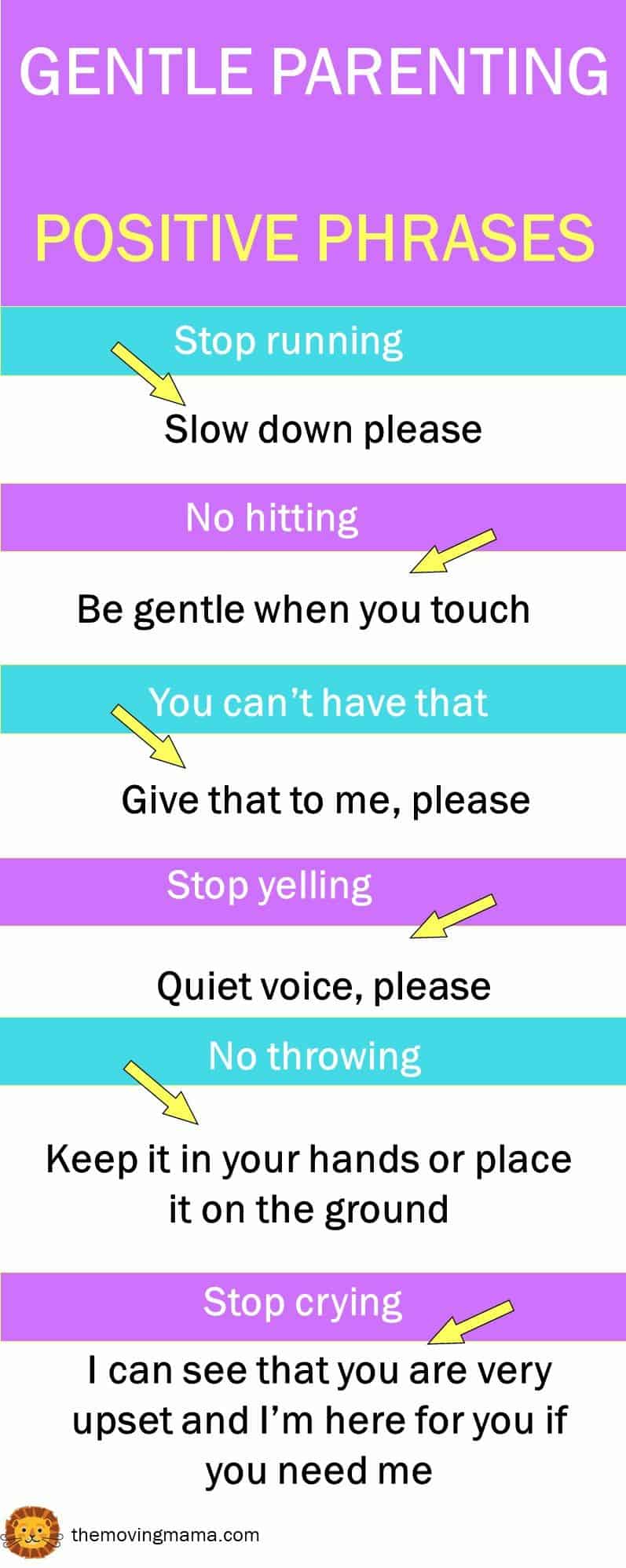
Positive commands help your child to obey because you’re focusing on the positive not the negative. It’s not that there is something wrong about using the word “No,” it’s just not always helpful as using a positive phrase instead. Even adults would prefer positive instructions over negative ones.
#8. Problem solve together
The 8th and final tip in how to discipline a child is to problem solve together.
If your child has an issue with a certain behaviour you need to come up with a solution that can be helpful for them, but if you include them in the problem solving then it’s more likely that they’ll be able to follow along with that solution – because they helped come up with it!
Conclusion
Learning how to discipline a child doesn’t have to be complicated, but as you can see it requires some strategies maybe a bit different that what you’re used to, but also some inner work. Most of us have an inner wounded child that can contribute to how we parent now based on the truths we gathered as a child.
Gentle Parenting for me has also meant to re-parent myself and re-learn A LOT about what it means to be a parent, to be a child, discipline, obedience and so much more.
It can be a long journey, with a lot of inner work to be done, but it’s worth it when we see that we are able to break the cycles of how the generations before us parented.
Knowledge is power, you’ve got this! So don’t forget also to sign up now for Gentle Foundations for Parenting (for free) so you can get even more in depth information about how to discipline a child.


